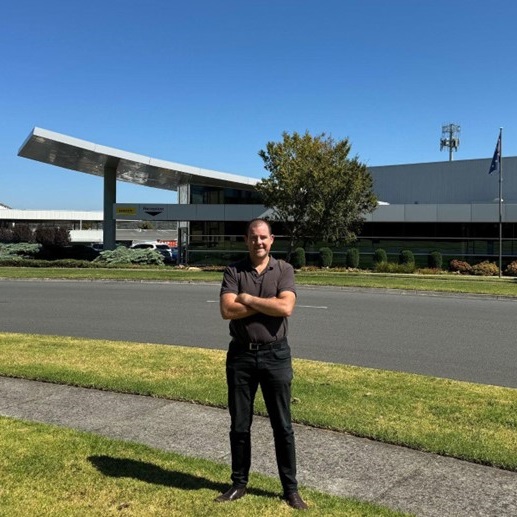
Climate tech startup MetroElectro secures over $1 million of pre-seed funding from Wavemaker Impact
MetroElectro, an innovative climate tech startup founded by veteran digital business entrepreneur Lloyd Heinrich, has reached a significant milestone in its journey to speed up Australia’s transition to an energy grid powered by renewables. The startup has successfully secured a pre-seed investment of AU$1.03 million (US$690k) from Singapore-based climate tech venture builder Wavemaker Impact, propelling MetroElectro towards its goal of unlocking the vast potential of Commercial and Industrial (C/I) distributed energy resources (DER).
“Our mission to build a portfolio of companies that can decarbonise 10% of global carbon emissions compelled us to look at Australia and see it as one of the most advanced markets in innovation and commitment to reaching climate goals,” says Marie Cheong, Wavemaker Impact Founding Partner. “MetroElectro embodies how we see our vision come to life in this market and its role in decarbonising our future. We look forward to the success Lloyd will bring in Australia and beyond in the next few years.”
The first of its kind in Australia as a climate tech venture built from a venture-studio model, MetroElectro developed its innovative solution through collaborating with industry experts, investors, and businesses in the C/I sector. The pre-seed funding will allow the company to move to the next phase of developing a number of pilot projects in a premium industrial park in the outer suburbs of Melbourne, and unlocking further funding opportunities to drive the decarbonisation of the Australian electricity grid.
With an ambitious target of 82% renewable power generation by 2030, Australia finds itself behind target and needs to deploy renewables at pace. Despite this, delays in approvals, waning community support and the massive cost of improving transmission networks have constrained grid scale renewables projects. There are currently ~16 gigawatts of small scale residential rooftop solar and ~7 gigawatts of grid scale solar deployed in Australia. The laggard is the “missing middle” of C/I applications with only ~4 gigawatts of installed capacity. Furthermore, the solar duck-curve challenge is making new renewable energy projects less attractive due to low and sometimes even negative pricing during the day when solar is producing at its peak. A complete DER solution with generation paired with storage and intelligent demand response capability is critical to enabling decarbonisation of the grid.
“MetroElectro’s solution is built with all the challenges of our renewable energy transition in mind,” said Lloyd Heinrich, Founder and CEO of MetroElectro. “How do you address the ‘missing middle’ and provide a solution that speeds the renewables transition, alleviates grid congestion whilst also appealing to both C/I building owners and their tenants? We’re pleased to say we’ve found a solution that addresses this three-sided, multi-party problem.”
The solution aims to transform overlooked swathes of rooftops in industrial parks, turning these difficult-to-address assets into efficient energy generation resources. The approach simplifies the complexities, eliminates onerous capital requirements on owners and their tenants, and mitigates risks associated with distributed solar power on commercial rooftops. Through strategic coordination with key stakeholders, including building owners, operators, the electricity grid, off-takers, and financiers, MetroElectro aggregates supply to facilitate meaningful trading in both wholesale markets and ancillary services.
“MetroElectro creates an exciting alternative to grid-scale renewable projects that are close to urban areas and takes advantage of large unused rooftop space. This solution has the potential to significantly speed up Australia’s energy transition,” Monique Conheady, Australian-based Venture Partner for Wavemaker Impact, said.
MetroElectro is targeting the AU$672 billion market for C/I renewable energy in Australia and beyond, with a vision to reach AU$100 million in revenue and abate 100 million tons of CO2 in the near future.

